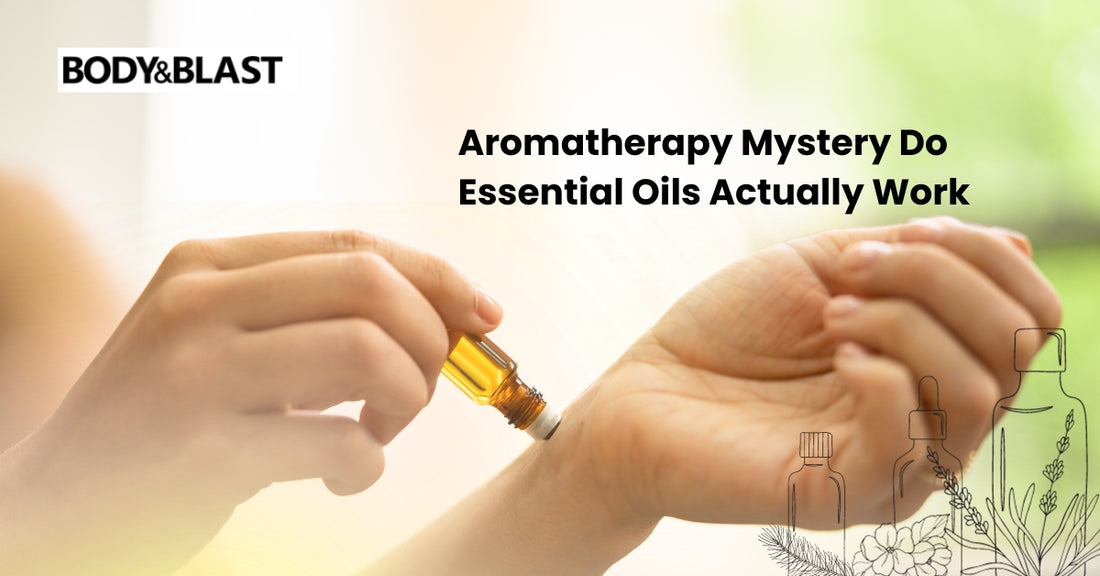
Aromatherapy Mystery: Do Essential Oils Actually Work?
Aromatherapy Mystery: Do Essential Oils Actually Work?
Aromatherapy Mystery: Do Essential Oils Actually Work?
Aromatherapy, the practice of using aromatic essential oils derived from plants to promote physical and emotional well-being, has been gaining popularity in recent years. From stress relief to improved sleep and skincare benefits, essential oils are praised for their holistic healing potential. But are essential oils a true elixir of well-being, or is it all just fragrant hype? In this blog, we'll delve into the science, history, and practical applications of aromatherapy to answer the question: Do essential oils actually work?
The Roots of Aromatherapy
Aromatherapy is not a modern wellness fad. Its roots can be traced back thousands of years to ancient civilizations such as Egypt, Greece, and China. The use of aromatic plant extracts for their therapeutic properties has been a part of human history for a very long time. So, there must be something to it, right?
The Science Behind Aromatherapy
The effectiveness of aromatherapy isn't solely anecdotal; there's a scientific basis for its benefits. Essential oils are composed of compounds with various properties. For example, lavender oil contains linalool, which has a calming effect, while peppermint oil contains menthol, known for its refreshing and invigorating properties. When inhaled or applied to the skin, these compounds interact with our body and mind in specific ways.
Aromatherapy and the Mind
One of the most well-known applications of aromatherapy is in stress reduction and mood enhancement. Essential oils can stimulate the olfactory system, which is linked to our emotional center in the brain. The aroma of lavender, for instance, can help reduce anxiety and promote relaxation, while citrus oils like lemon can uplift your mood.
Aromatherapy for Physical Wellness
Beyond emotional well-being, aromatherapy has physical benefits. Eucalyptus oil can help with congestion and breathing, tea tree oil is known for its antibacterial properties, and ginger oil can be used for its anti-inflammatory effects. But how do these oils actually work on the body?
Application Methods
Aromatherapy offers various application methods, such as:
-
Diffusion: Using a diffuser to disperse the aroma throughout a room.
-
Topical Application: Diluting essential oils with a carrier oil and applying them to the skin, which allows for absorption.
-
Inhalation: Inhaling the aroma directly from the bottle or through steam inhalation.
- Baths: Adding a few drops of essential oil to a warm bath.
The Importance of Quality
The efficacy of aromatherapy heavily relies on the quality of the essential oils used. Pure, therapeutic-grade oils are more likely to deliver the intended benefits. Be cautious of cheaper, synthetic fragrances labeled as "essential oils."
Real-Life Experiences
Many individuals have experienced the positive effects of aromatherapy. Personal testimonies and success stories speak to the tangible benefits that essential oils can offer. These stories add weight to the argument that aromatherapy is more than just a pleasant aroma.
The Art of Self-Care
Aromatherapy is also about self-care and the power of belief. The act of setting aside time for relaxation, meditation, or personal rituals can have a profound impact on your overall well-being. Essential oils are often used to enhance these self-care practices.
In Conclusion
Aromatherapy is a multifaceted practice that combines science, tradition, and the power of scent to enhance well-being. While not all claims are equally substantiated, essential oils do have genuine therapeutic potential. Their effectiveness can vary from person to person, and it's essential to use them mindfully and responsibly.
So, to answer the question, "Do essential oils actually work?" – the evidence suggests that they can, but the extent of their effectiveness depends on various factors, including the quality of the oils, personal preferences, and the specific application. Ultimately, the best way to determine if aromatherapy works for you is to try it and experience the benefits firsthand.
